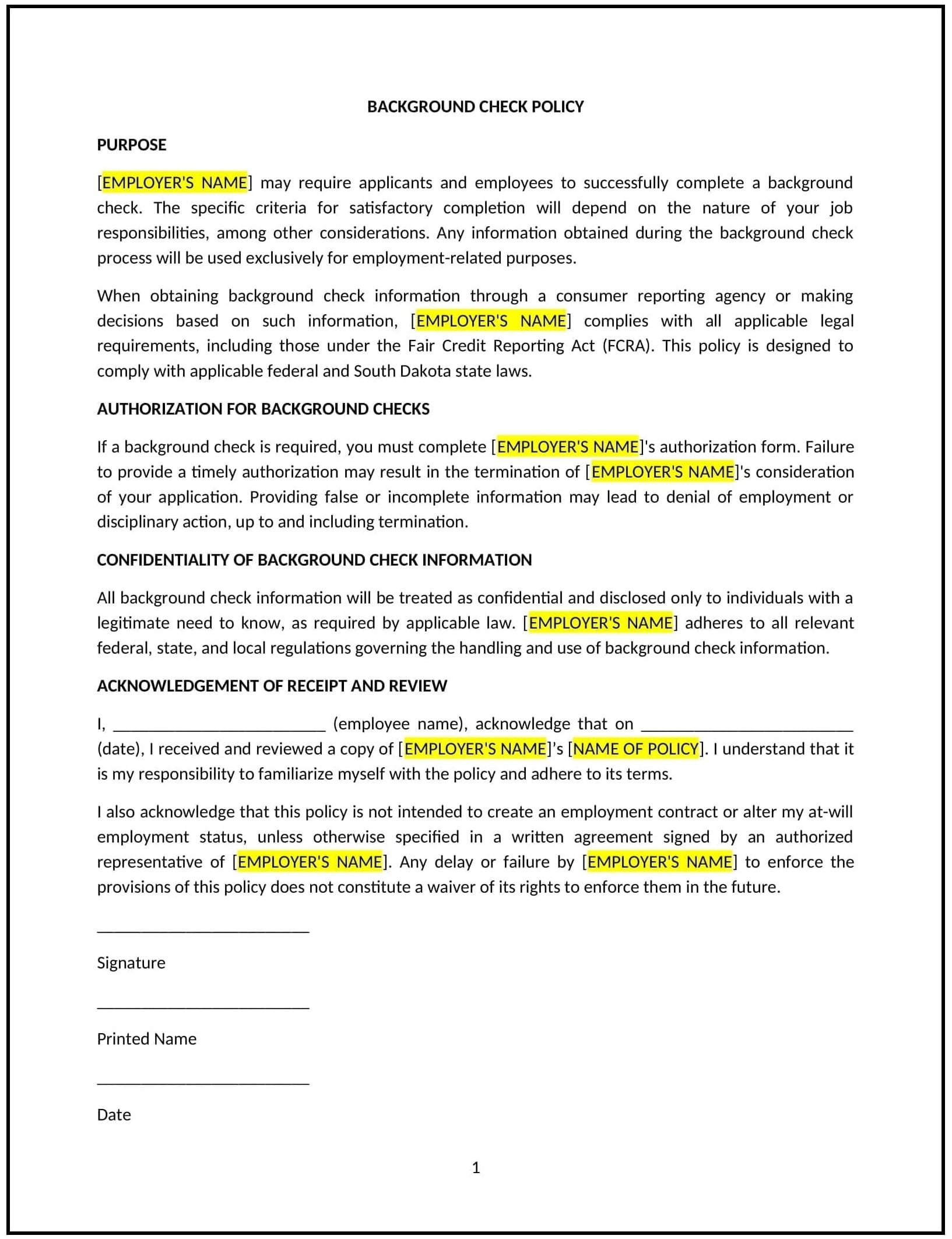Background check policy (South Dakota): Free template
Got contracts to review? While you're here for policies, let Cobrief make contract review effortless—start your free review now.

Customize this template for free
Background check policy (South Dakota)
This background check policy is designed to help South Dakota businesses establish guidelines for conducting background checks on job applicants and employees. It outlines procedures for obtaining consent, reviewing results, and maintaining confidentiality.
By adopting this policy, businesses can make informed hiring decisions, reduce risks, and align with general best practices for background screening.
How to use this background check policy (South Dakota)
- Define scope: Explain what types of background checks will be conducted, such as criminal history, employment verification, or education verification.
- Obtain consent: Provide steps for obtaining written consent from job applicants or employees before conducting background checks.
- Review results: Specify how background check results will be reviewed and used in hiring or employment decisions.
- Maintain confidentiality: Outline procedures for securely storing and disposing of background check information.
- Train managers: Educate supervisors on conducting background checks in compliance with the policy.
- Review and update: Assess the policy annually to ensure it aligns with evolving business needs and legal standards.
Benefits of using this background check policy (South Dakota)
This policy offers several advantages for South Dakota businesses:
- Reduces risks: Helps prevent hiring individuals who may pose a risk to the business or other employees.
- Supports informed decisions: Provides valuable information for making hiring and employment decisions.
- Promotes fairness: Ensures background checks are conducted consistently and without discrimination.
- Builds trust: Demonstrates a commitment to maintaining a safe and secure work environment.
- Supports reputation: Positions the business as a responsible and thorough employer in the community.
Tips for using this background check policy (South Dakota)
- Communicate the policy: Share the policy with job applicants and employees, and include it in the employee handbook.
- Provide training: Educate managers on conducting background checks in compliance with the policy.
- Monitor compliance: Regularly review background check procedures to ensure adherence to the policy.
- Address issues promptly: Take corrective action if background checks are mishandled or conducted improperly.
- Update regularly: Assess the policy annually to ensure it aligns with evolving business needs and legal standards.